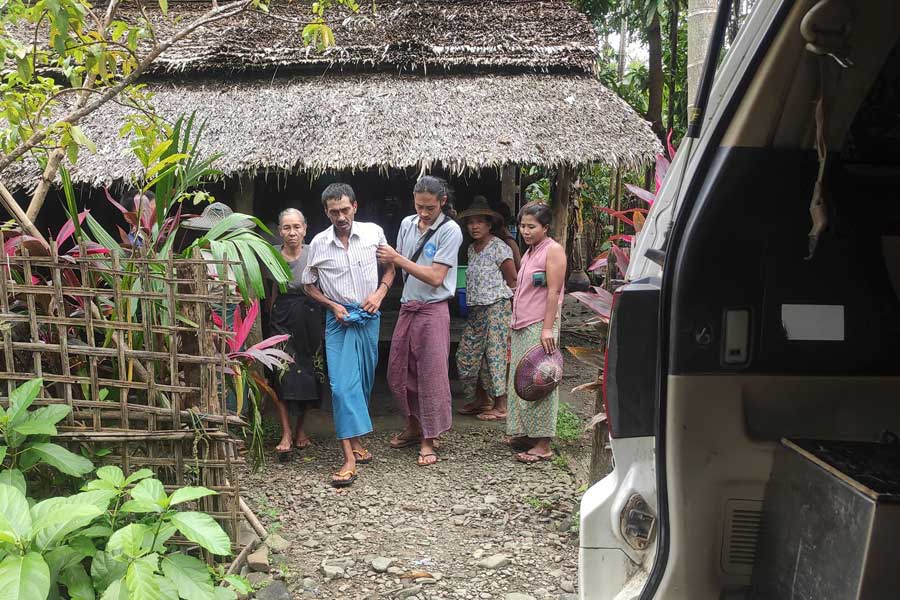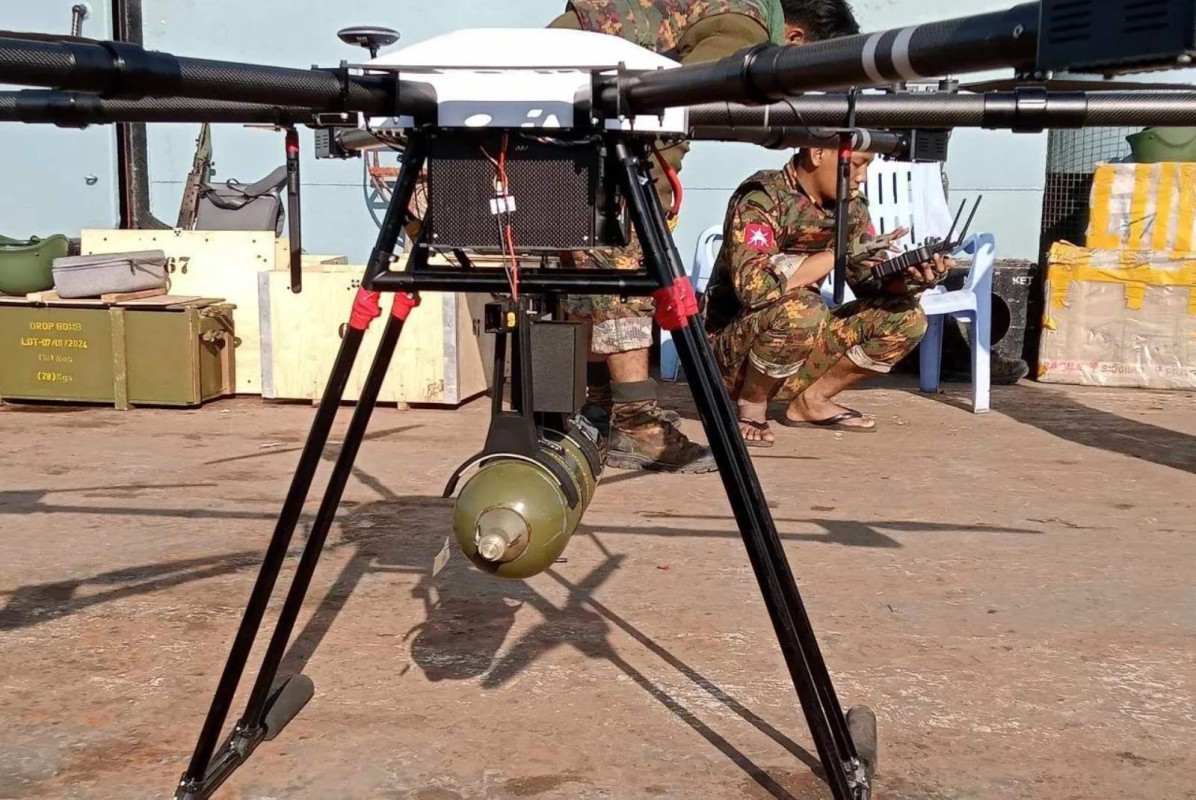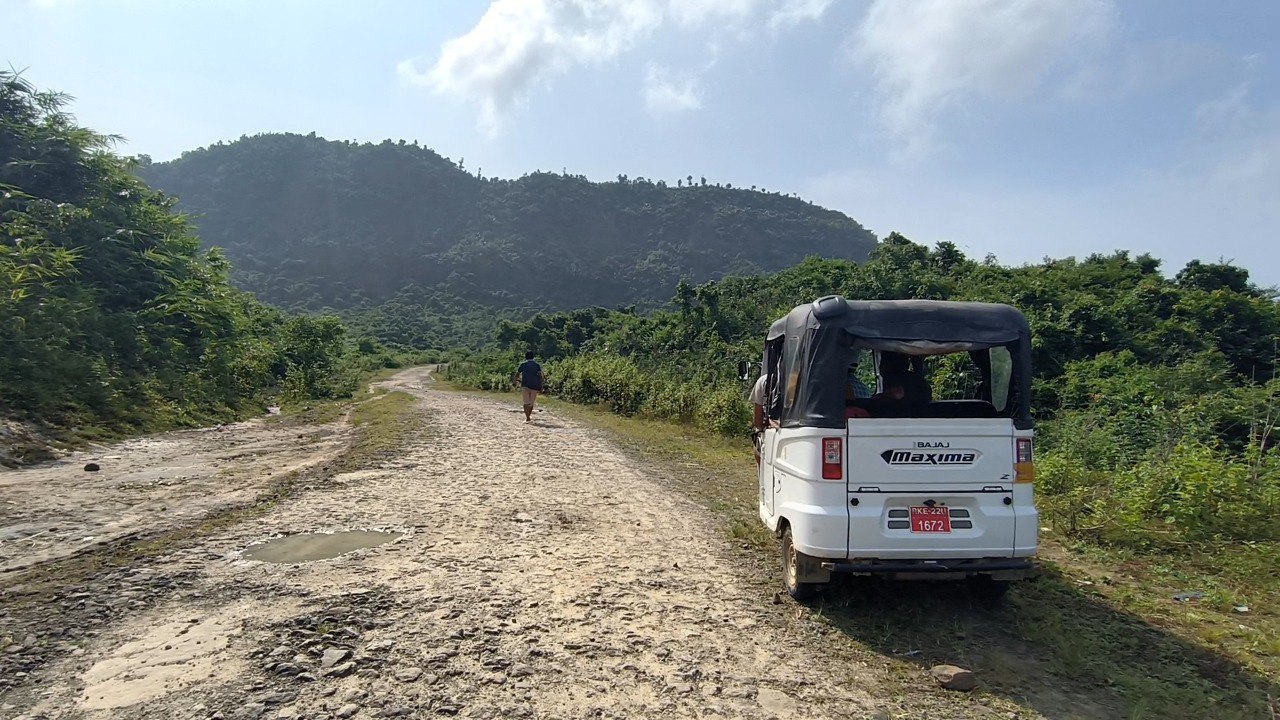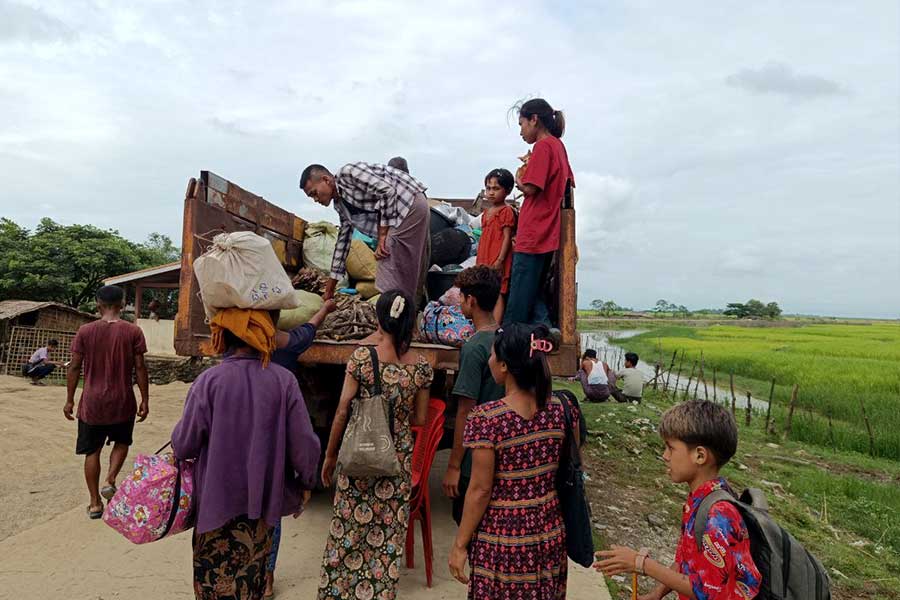- Family of minors raped by abbot in Kyaukphyu demand justice
- Salt farming declines in Arakan State as costs rise and markets falter
- Thousands flee junta raids in Mindon as villages are torched
- Children in Arakan State urgently need psychosocial support and safe spaces
- Regime uses paramotors and gyrocopters to target civilians, Fortify Rights says
Locals in Gwa face shortages of food, medicines
Gwa Township residents are facing the shortages as the regime has banned the transportation of food and commodities from Ayeyarwady Region into the area.
13 Sep 2024

DMG Newsroom
13 September 2024, Gwa
Local people in Arakan State’s Gwa Township, where fighting between the military and Arakkha Army (AA) is ongoing, face shortages of food and medicine due to junta blockades.
Gwa Township residents are facing the shortages as the regime has banned the transportation of food and commodities from Ayeyarwady Region into the area.
“Groceries closed as owners fled to safer locations. We face difficulties buying rice, cooking oil and iodised salt, and commodity prices are skyrocketing. I had never seen people begging in Gwa before. Now there are some beggars in Gwa,” said a local woman.
Fishing is the main source of livelihood in Gwa Township, and residents rely on rice purchased from Ayeyarwady Region due to the limited availability of farmland in their township.
A junta ban on fishing, therefore, is adding further trouble for locals.
“We struggle to make ends meet due to the junta fishing ban and scarcity of job opportunities. There are no commodities even if you have money to buy. Merchants sell their goods at higher prices,” said another local woman in Gwa.
Fighting between Myanmar’s military regime and the AA has escalated in Gwa Township after the ethnic armed group seized control of Thandwe Township last month.
The junta’s administrative apparatus is at a standstill in Gwa, and hospitals and clinics are no longer operating. Medicines are also in short supply, and residents say they fear for their lives in the event of an emergency.
“We have to see a fake doctor as there are no doctors or clinics in Gwa. Medicines are also in short supply. We are worried about our health matters,” said a local man.
Thousands of Gwa residents have been displaced by the fighting, which began on August 8, with those displaced people taking refuge in neighbouring Ayeyarwady Region and other locations. About one-third of Gwa’s population remains in the town for various reasons.






.png)








.jpg)

